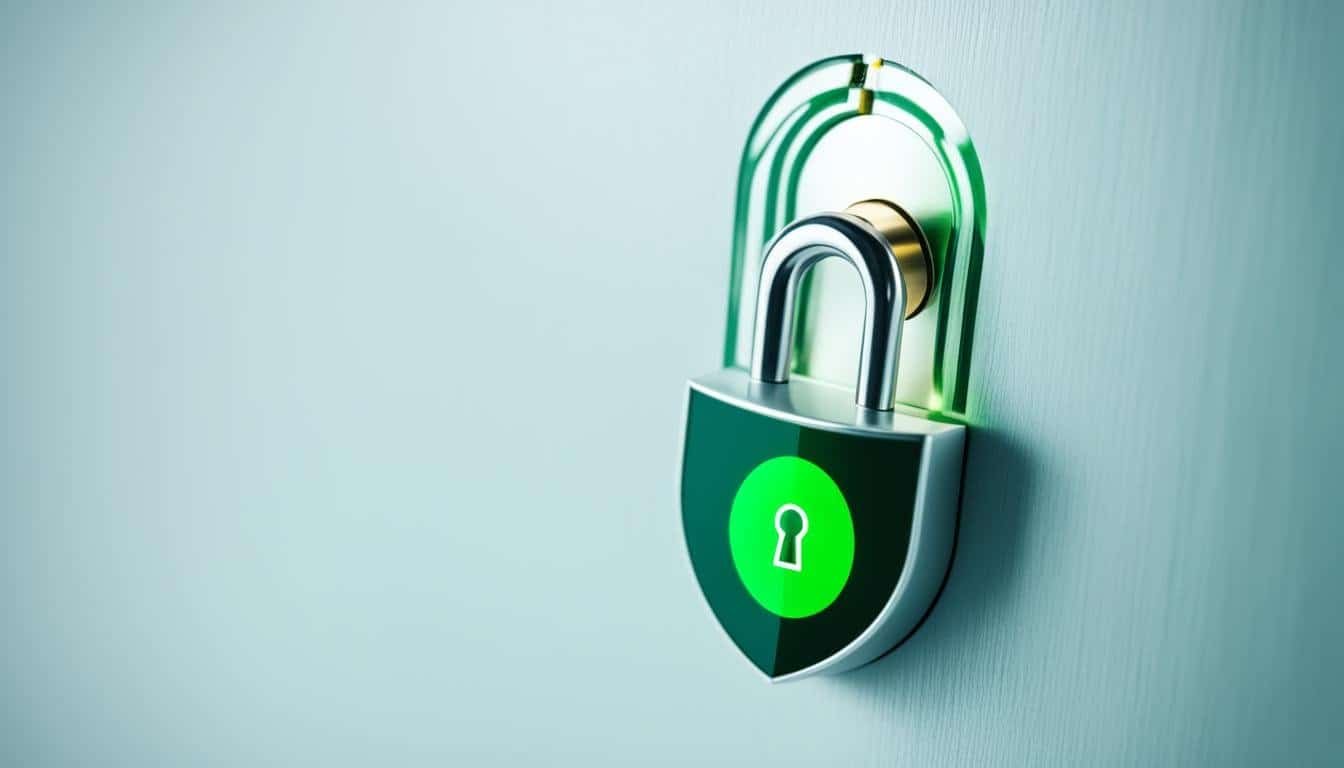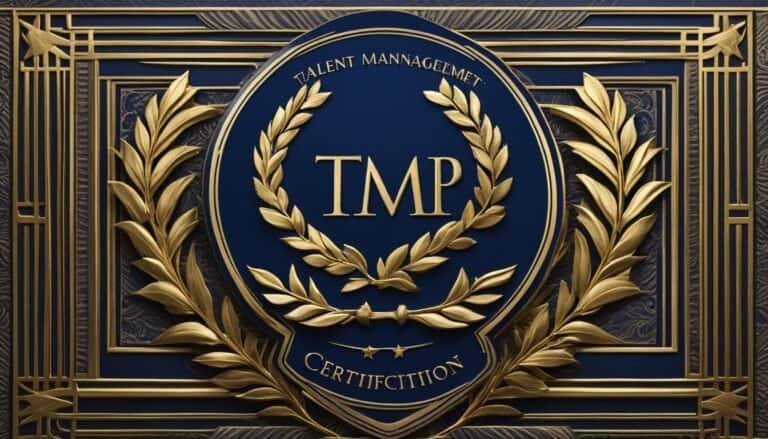Certified Ethical Hacker (CEH)
|
Getting your Trinity Audio player ready...
|
Did you know that cybercrime is estimated to cost the world $10.5 trillion annually by 2025? With the increasing reliance on digital technologies, the need for cybersecurity professionals has never been greater. In this article, we will explore the world of Certified Ethical Hackers (CEH) and how they are trained to protect networks from malicious attacks.
The CEH certification is a globally recognized credential that equips individuals with the skills and knowledge to identify vulnerabilities and safeguard against network threats. This ethical hacking certification encompasses comprehensive training, hands-on learning with CyberQTM Labs, and flexible learning options to prepare cybersecurity professionals for the rapidly evolving threat landscape.
By becoming a Certified Ethical Hacker (CEH), individuals can unlock exciting career opportunities in the cybersecurity field. Through this certification, professionals gain the expertise to use ethical hacking tools, techniques, and methodologies employed by hackers and information security specialists. This knowledge is crucial in countering cyber incidents and protecting organizations from potential data breaches.
CEH training focuses on enhancing practical skills through 20 modules that cover various aspects of ethical hacking. With hands-on labs featuring over 220 hacking tools and practice on multiple operating systems, such as Windows 11, Linux, and Android, professionals gain real-world hacking experiences and develop the necessary skills to assess and secure network vulnerabilities.
To prove their skills and abilities, candidates must pass a rigorous examination process that consists of a knowledge exam and a practical exam. The knowledge exam assesses theoretical knowledge through multiple-choice questions, while the practical exam requires candidates to conduct a real-world ethical hacking assignment. This comprehensive certification process ensures that Certified Ethical Hackers have the competence to identify and mitigate security risks.
Furthermore, certified professionals can engage in real-world ethical hacking activities through the unique C|EH Engage feature. This hands-on experience allows individuals to perform security assessments on an emulated organization, simulating real-world scenarios and presenting specific objectives to be achieved. By applying their skills and knowledge, CEH professionals gain practical expertise in securing networks and combating cyber threats.
To continuously enhance skills and stay updated on the latest vulnerabilities and exploits, Certified Ethical Hackers can participate in monthly C|EH Global Challenges. These capture-the-flag style competitions provide opportunities to compete with peers and demonstrate problem-solving abilities in scenario-based engagements. These challenges cover various technologies and platforms, including web applications, OT, IoT, SCADA, ICS systems, and cloud environments.
In conclusion, the Certified Ethical Hacker (CEH) certification plays a vital role in safeguarding networks from cyber-attacks. With the ever-growing threat landscape, organizations need skilled professionals who can identify vulnerabilities and protect against malicious activities. By attaining the CEH certification, individuals can embark on a rewarding cybersecurity career and make a significant impact in ensuring network security in the cyber age.
Become a Certified Ethical Hacker (C|EH)
In today’s digital landscape, cybersecurity incidents pose a significant threat to organizations worldwide. With a rise in cybercrime, businesses are in dire need of skilled professionals who can safeguard their networks from malicious hackers. The demand for cybersecurity experts is on the rise, along with the rapid growth of cyber jobs.
One way to enter this lucrative field is by becoming a Certified Ethical Hacker (C|EH). This prestigious certification equips individuals with the necessary skills, knowledge, and ethical hacking tools to identify vulnerabilities and protect against potential cyber threats.
By obtaining the C|EH certification, information security professionals can enhance their expertise and career prospects in the cybersecurity industry. This globally recognized certification is a testament to an individual’s commitment to ethical hacking and their ability to mitigate risks effectively.
The C|EH program covers the five essential phases of ethical hacking:
- Reconnaissance: Investigating and gathering information about the target system.
- Scanning: Identifying vulnerabilities and weaknesses in the system.
- Gaining Access: Exploiting vulnerabilities to gain unauthorized access to the system.
- Maintaining Access: Ensuring continuous access to the system without detection.
- Covering Tracks: Erasing any evidence of the intrusion.
Becoming a Certified Ethical Hacker provides professionals with the knowledge and skills to combat cyber threats effectively. It empowers individuals to think like hackers, enabling them to proactively identify and address security vulnerabilities in networks and systems.
Through comprehensive training and hands-on practical exercises, C|EH certification holders learn how hackers think, act, and exploit weaknesses. This invaluable knowledge assists in maintaining the security and integrity of critical information systems.
Gain Skills with C|EH Training
The C|EH training program is designed to equip individuals with the skills and knowledge required to become a certified ethical hacker. Through a comprehensive curriculum, participants gain hands-on experience and practical expertise in various ethical hacking modules.
Ethical Hacking Modules
The C|EH training program consists of 20 modules that cover a wide range of ethical hacking topics. These modules provide a deep understanding of hacking techniques, methodologies, and tools used by cybercriminals. By exploring concepts such as reconnaissance, scanning, gaining access, maintaining access, and covering tracks, participants develop a holistic view of the ethical hacking process.
Hands-On Labs
Hands-on labs are an integral part of the C|EH training program, allowing participants to apply their knowledge and skills in a practical setting. With over 220 hacking tools available, individuals have the opportunity to simulate real-world hacking scenarios and gain valuable experience in a controlled environment. These labs enhance learning and provide a platform for professionals to sharpen their ethical hacking capabilities.
Hacking Tools and Operating Systems
The C|EH training program covers a diverse range of hacking tools and operates on multiple operating systems. Participants have the chance to work with popular tools that are essential for ethical hacking, enabling them to explore vulnerabilities, discover loopholes, and enhance network security. The program supports hands-on practice on operating systems such as Windows 11, Windows Servers, Linux, Ubuntu, and Android, ensuring participants gain comprehensive proficiency.
By undertaking the C|EH training program, individuals gain valuable skills, practical experience, and expertise in ethical hacking. This knowledge empowers professionals to make significant contributions in the field of cybersecurity and effectively protect organizations from potential threats.
| Benefits of C|EH Training | Features of C|EH Training |
|---|---|
|
|
Prove Your Skills and Abilities with C|EH Certification
The Certified Ethical Hacker (C|EH) certification offers professionals the opportunity to validate their skills and abilities in ethical hacking. This globally recognized certification is a testament to their expertise in cybersecurity and sets them apart in the industry.
The C|EH certification process involves two main components: a knowledge exam and a practical exam. These exams are designed to assess an individual’s understanding of ethical hacking principles and their practical application in real-world scenarios.
Knowledge Exam
The knowledge exam consists of 125 multiple-choice questions that evaluate a professional’s theoretical knowledge of ethical hacking concepts, methodologies, and best practices. It covers a wide range of topics, including network security, vulnerability assessment, and penetration testing techniques.
By successfully passing the knowledge exam, professionals demonstrate their comprehensive understanding of the foundational principles and key concepts of ethical hacking, establishing a solid foundation for practical application.
Practical Exam
The practical exam is an essential component of the C|EH certification process, as it evaluates an individual’s ability to apply ethical hacking skills in real-world scenarios. The practical exam is scenario-based and requires individuals to conduct a simulated ethical hacking assignment, following the five phases of ethical hacking: reconnaissance, scanning, gaining access, maintaining access, and covering tracks.
This hands-on exam challenges professionals to demonstrate their technical proficiency, critical thinking, and problem-solving skills. By successfully completing the practical exam, individuals showcase their ability to identify vulnerabilities, exploit security weaknesses, and propose effective mitigation measures.
Ethical Hacking Assignment
As part of the practical exam, individuals are assigned a real-world ethical hacking assignment that mirrors the challenges faced by cybersecurity professionals in the field. This assignment requires them to apply their knowledge and skills acquired throughout the certification process to identify and exploit vulnerabilities within a simulated environment.
| Exam Component | Format | Skills Assessed |
|---|---|---|
| Knowledge Exam | Multiple-choice questions | Theoretical understanding |
| Practical Exam | Scenario-based questions | Application of ethical hacking skills |
| Ethical Hacking Assignment | Real-world scenario | Identification and exploitation of vulnerabilities |
Upon successful completion of both the knowledge and practical exams, professionals are awarded the C|EH certification. This certification serves as a testament to their expertise and allows them to showcase their skills and abilities to potential employers and clients.
Becoming a certified ethical hacker not only validates professionals’ competencies but also opens up new career opportunities in the ever-growing field of cybersecurity. With the C|EH certification, professionals can confidently pursue roles such as ethical hacker, penetration tester, cybersecurity analyst, and security consultant, among others.
Engage in Real-World Ethical Hacking with C|EH Engage
C|EH Engage is a unique feature of the C|EH program that allows professionals to actively participate in real-world ethical hacking engagements. By simulating scenarios on an emulated organization, individuals can apply their skills and knowledge in a practical setting to ensure the security of networks and systems. This hands-on approach provides valuable experience and equips professionals with the necessary expertise to tackle real-world cybersecurity challenges.
Real-World Ethical Hacking
The C|EH Engage feature presents security assessment objectives in the form of flags that need to be captured through ethical hacking activities. This immersive experience allows professionals to navigate a series of objectives designed to replicate real-world hacking scenarios, making it an invaluable tool in preparing for cybersecurity challenges.
Throughout the engagement, professionals will encounter different phases to test their skills and evaluate security measures:
- Vulnerability Assessment: Identify potential vulnerabilities within the emulated organization’s network.
- Gaining Access: Utilize ethical hacking techniques to gain unauthorized access to targeted systems.
- Perimeter and Web App Exploitation: Exploit weaknesses in the organization’s perimeter and web applications to test their resilience.
- Mobile, IoT, OT Exploitation: Assess the security of mobile, Internet of Things (IoT), and Operational Technology (OT) devices within the emulated organization.
This comprehensive engagement approach ensures professionals gain practical exposure to a wide range of cybersecurity scenarios, enhancing their ability to protect real-world systems and networks against potential threats.
Applying Skills in an Emulated Organization
The emulated organization used in C|EH Engage represents a realistic environment where professionals can apply their ethical hacking skills and knowledge. This virtual setting mirrors the challenges faced by organizations in today’s evolving threat landscape, providing a platform for professionals to explore vulnerabilities, test defenses, and develop effective mitigation strategies.
C|EH Engage enables professionals to gain firsthand experience in assessing network security, identifying weaknesses, and implementing measures to mitigate risks. By interacting with realistic systems and processes, individuals can refine their ethical hacking techniques, ensuring they are well-equipped to defend against real-world cyber threats.
Image:
https://www.youtube.com/watch?v=Xv-O2HizYCY
Compete with Your Peers in C|EH Global Challenges
Take your ethical hacking skills to the next level and compete with your peers in the thrilling C|EH Global Challenges. These capture-the-flag style competitions are designed to test your abilities and keep you up to date with the latest vulnerabilities and exploits.
Each month, participants from around the world gather on EC-Council’s Cyber Range to engage in scenario-based engagements. The challenges cover various technologies and platforms, including web applications, OT, IoT, SCADA, ICS systems, and cloud environments.
As you race against the clock, you’ll showcase your critical thinking abilities by completing challenging tasks, capturing flags, and earning a spot on the leaderboard. The C|EH Global Challenges offer a unique opportunity to compete in a friendly yet fiercely competitive environment.
Not only will you have the chance to hone your skills and prove your capabilities, but you’ll also gain valuable experience that can enhance your professional portfolio. The competition format allows you to apply your knowledge in real-world scenarios, preparing you for the challenges you may face in your cybersecurity career.
So, if you’re ready to take on the best of the best, join the C|EH Global Challenges and compete with your peers in the ultimate ethical hacking showdown.
C|EH Global Challenges Highlights:
- Capture-the-flag style competitions
- Scenario-based engagements
- Monthly challenges
- Latest vulnerabilities and exploits
- Friendly yet competitive environment
- Opportunity to showcase critical thinking abilities
- Real-world scenario application
- Enhancement of professional portfolio
Certified Ethical Hacker (ANSI) Certification Process
Obtaining the Certified Ethical Hacker (ANSI) certification is a significant milestone in the field of ethical hacking. This internationally recognized certification is highly regarded by industry professionals and organizations worldwide.
To be eligible for the exam, candidates must meet specific criteria. These include holding a previous version of the Certified Ethical Hacker certification or having a minimum of two years of work experience in the InfoSec domain.
The certification exam itself consists of a multiple-choice question (MCQ) format and has a duration of four hours. It tests candidates’ knowledge and understanding of ethical hacking principles, methodologies, and best practices.
In the event of not passing the exam, candidates can request a retake. This allows individuals to have another opportunity to demonstrate their skills and knowledge in the field of ethical hacking.
The certification process is part of the EC-Council Continuing Education Scheme, which encourages professionals to continually enhance their expertise and stay updated with the latest advancements in the cybersecurity domain.
ANSI Certification
The Certified Ethical Hacker (ANSI) certification is accredited by ANAB (ANSI) ISO/IEC 17024. This accreditation ensures that the certification meets the highest standards of quality and is recognized globally by employers and industry leaders.
Eligibility Criteria
Candidates must meet specific eligibility criteria to apply for the Certified Ethical Hacker (ANSI) certification:
- Hold a previous version of the Certified Ethical Hacker certification
- Have a minimum of two years of work experience in the InfoSec domain
Exam Details
The Certified Ethical Hacker (ANSI) exam is designed to assess candidates’ knowledge and understanding of ethical hacking principles. Key details about the exam include:
- Exam format: Multiple-choice questions (MCQ)
- Exam duration: 4 hours
- Coverage: Ethical hacking principles, methodologies, and best practices
Retake Policy
In case a candidate does not pass the exam, they have the option to request a retake. This provides individuals with another opportunity to demonstrate their skills and expertise. The retake policy ensures that candidates have a fair chance to achieve the certification and further develop their ethical hacking capabilities.
| Certification Process | ANSI Certification | Eligibility Criteria | Exam Details | Retake Policy |
|---|---|---|---|---|
| Certified Ethical Hacker (ANSI) | Accredited by ANAB (ANSI) ISO/IEC 17024 |
|
|
In case of failure, retake requests can be made to provide candidates with another opportunity to pass the exam. |
Importance of Certified Ethical Hackers in Network Security
Certified Ethical Hackers (CEH) play a crucial role in ensuring network security. With the increasing prevalence of cyber threats, organizations need professionals who can proactively identify vulnerabilities and implement preventive measures to protect their networks. By leveraging their knowledge and expertise, certified ethical hackers assess the security posture of target systems and help organizations strengthen their network defenses.
Through the use of ethical hacking techniques and tools, CEH professionals can simulate real-world cyber attacks to identify potential weaknesses in network infrastructure, applications, and systems. This process, known as vulnerability assessment or penetration testing, allows organizations to address security gaps before malicious actors exploit them.
Unlike malicious hackers, certified ethical hackers operate within legal limits and follow strict ethical guidelines. They collaborate with organizations to thoroughly analyze network security, identifying vulnerabilities, weaknesses, and potential entry points for cyber attacks. This proactive approach enables swift mitigation of security loopholes, reducing the risk of data breaches, system compromises, and financial losses.
“The role of certified ethical hackers is to act as defenders, utilizing their deep understanding of hacking techniques to identify vulnerabilities and protect against malicious attacks.”
By conducting comprehensive vulnerability assessments, certified ethical hackers stay ahead of potential cyber threats. They perform thorough investigations of network systems, applications, and devices, focusing on identifying any weaknesses that could be exploited by hackers. Through these assessments, organizations gain insights into the security gaps that require immediate attention and can prioritize resources for necessary security enhancements.
The expertise of certified ethical hackers extends beyond vulnerability assessment. They also provide recommendations for improving network security and guide organizations in implementing preventive measures to safeguard against future cyber attacks. These recommendations can include deploying security patches, updating system configurations, implementing strong password policies, and educating employees about cybersecurity best practices.
Benefits of Certified Ethical Hackers in Network Security:
- Identification and mitigation of vulnerabilities before malicious attacks occur
- Thorough analysis of network security posture to strengthen defenses
- Collaborative approach to addressing security gaps with organizations
- Ethical and lawful assessment of network systems
- Proactive approach to protecting sensitive data and preventing data breaches
- Guidance in implementing preventive measures and security enhancements
Conclusion
Becoming a Certified Ethical Hacker (CEH) is the key to unlocking a successful career in cybersecurity. This globally recognized certification equips individuals with the skills and knowledge needed to protect organizations from potential cyber attacks. With the ever-growing threat landscape, the demand for cybersecurity professionals with ethical hacking skills is increasing in various industries.
By obtaining the Certified Ethical Hacker certification, professionals can establish themselves as trusted experts in the field of network security. This certification validates their ethical hacking skills, allowing them to identify vulnerabilities and implement effective preventive measures. It opens up opportunities for career growth and advancement in the cybersecurity industry.
With the Certified Ethical Hacker certification, individuals can make a meaningful contribution to the world of cybersecurity. They can play a vital role in safeguarding organizations’ sensitive data and infrastructure from malicious intrusions. By staying updated with the latest hacking techniques and best practices, ethical hackers can stay one step ahead of cybercriminals, ensuring a secure digital environment.
FAQ
What is the Certified Ethical Hacker (CEH) certification?
The Certified Ethical Hacker (CEH) certification is a globally recognized certification in the field of ethical hacking and cybersecurity. It equips professionals with the skills and knowledge to identify vulnerabilities and protect against network threats.
What are the career opportunities after becoming a Certified Ethical Hacker?
Becoming a Certified Ethical Hacker (C|EH) opens up career opportunities in the growing field of cybersecurity. With cyber incidents on the rise, organizations need skilled professionals who can protect their networks from hackers.
What does the C|EH training program cover?
The C|EH training program consists of 20 modules covering various aspects of ethical hacking, including hands-on labs with over 220 hacking tools, and practice on multiple operating systems such as Windows, Linux, and Android. The program focuses on practical learning to ensure professionals gain real-world hacking skills.
How is the C|EH certification assessed?
The C|EH certification consists of a knowledge exam with 125 multiple-choice questions and a practical exam with scenario-based questions. The practical exam requires individuals to conduct a real-world ethical hacking assignment, applying the five phases of ethical hacking.
What is C|EH Engage?
C|EH Engage is a unique feature of the C|EH program that allows professionals to engage in real-world ethical hacking. It presents security assessment objectives as a series of flags that need to be captured by performing ethical hacking activities on an emulated organization.
What are C|EH Global Challenges?
C|EH Global Challenges provide an opportunity for professionals to compete with their peers in capture-the-flag style competitions. These challenges occur monthly and cover various technologies and platforms, including web applications, OT, IoT, SCADA, ICS systems, and cloud environments.
What is the process to obtain the Certified Ethical Hacker (ANSI) certification?
To obtain the Certified Ethical Hacker (ANSI) certification, candidates must meet eligibility criteria such as holding a previous version of the Certified Ethical Hacker certification or having a minimum of 2 years of work experience in the InfoSec domain. The exam is a multiple-choice question (MCQ) exam with a duration of 4 hours.
What is the importance of Certified Ethical Hackers in network security?
Certified Ethical Hackers play a crucial role in ensuring network security. They help organizations identify vulnerabilities and implement preventive measures before malicious attacks occur. By using the same knowledge and tools as hackers, ethical hackers assess the security posture of target systems.
What are the benefits of becoming a Certified Ethical Hacker?
Becoming a Certified Ethical Hacker provides individuals with the skills and knowledge needed to pursue a successful career in cybersecurity. The certification is globally recognized and opens up opportunities in various industries. With the constant increase in cyber threats, the demand for cybersecurity professionals with ethical hacking skills is on the rise.







